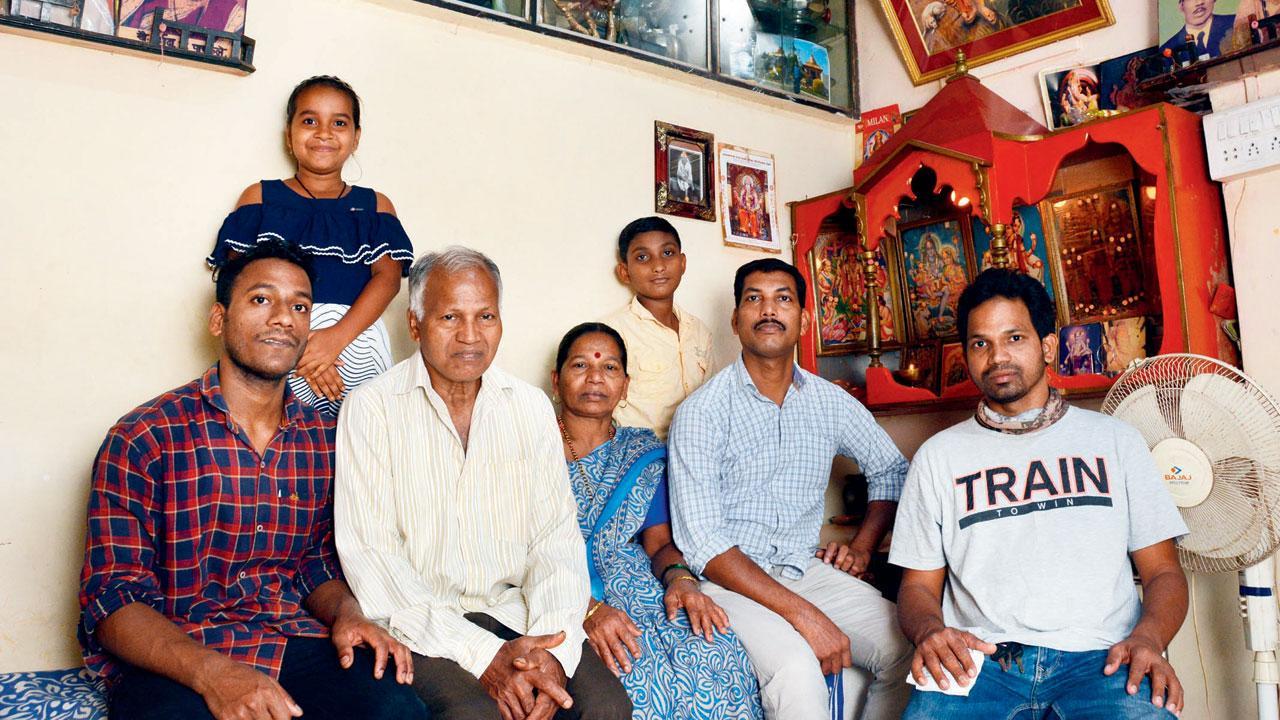Home / Mumbai / Mumbai News / Article /
Budget 2021: For small businesses, uncertainty is the new normal
Updated On: 01 February, 2021 08:30 AM IST | Mumbai | Team mid-day
Many with small businesses have discovered a steep decline in their earnings post-lockdown due to various reasons, though struggling, all remain hopeful for schemes to bail them out of the crisis

The Pachkales live at Flower Chawl at Seven Bungalows and depend on their snack centre for survival. Pic/Satej Shinde
When the COVID-19 pandemic choked people’s sources of income last year, scores headed for their hometown. Most have returned, but it’s no longer business as usual. Earnings have plunged not only for such people, but also for city residents running established businesses for years. On the eve of the Union Budget, mid-day speaks to Mumbaikars from various walks of life.
‘Remove surcharges on movie tickets’



